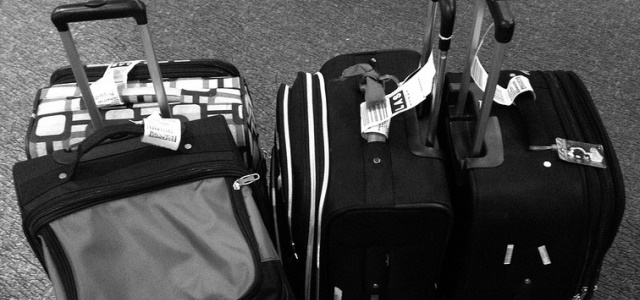 Getting approved under President Obama’s Deferred Action for Childhood Arrivals (DACA) program for DREAMers carries many benefits. DACA recipients get a renewable two-year reprieve from the threat of deportation, work authorization, the ability to receive a social security number, and, in all but two recalcitrant states where the issue is being litigated, a driver’s license. Importantly, DACA recipients can also apply for permission to travel abroad. This spring, the government issued welcome guidance regarding requests for permission to travel. Nonetheless, important questions and concerns about travel linger, including risks of traveling abroad even with permission.
Getting approved under President Obama’s Deferred Action for Childhood Arrivals (DACA) program for DREAMers carries many benefits. DACA recipients get a renewable two-year reprieve from the threat of deportation, work authorization, the ability to receive a social security number, and, in all but two recalcitrant states where the issue is being litigated, a driver’s license. Importantly, DACA recipients can also apply for permission to travel abroad. This spring, the government issued welcome guidance regarding requests for permission to travel. Nonetheless, important questions and concerns about travel linger, including risks of traveling abroad even with permission.
To travel abroad, a DACA recipient must first receive advance parole. Advance parole is a kind of permission slip from the government saying that a particular person should be allowed back into the country even though he or she does not have a valid visa. A DACA recipient seeking advance parole files a form with United States Citizenship and Immigration Services (USCIS) and pays a fee. The applicant must also establish that he or she intends to travel abroad for humanitarian, employment or educational purposes.
What qualifies as a humanitarian purpose has been the focal point of much advocacy. Several months ago — after pro-immigrants’ rights groups weighed in on the issue — the government recognized that flexibility is critical when it comes to deciding whether an advance parole applicant’s stated reason for travel is sufficiently compelling. Accordingly, the government modified the advance parole form instructions to clarify that its list of examples justifying travel was not exhaustive.
The government, however, has yet to clarify whether DACA recipients will receive travel permission to reunite with long-separated family members, many of whom were deported over the past several years of enforcement, enforcement, and yes, more enforcement. As this United We DREAM video movingly reveals, many DACA recipients have gone years without seeing and being held by their mothers and fathers. If USCIS considers reunions with family members like the ones in the video mere “vacations,” pursuant to current agency policy, it likely will deny travel permission. Hopefully, however, the agency will realize that reconnecting with close family members is an extremely important and legitimate humanitarian reason for young people to travel.
Regardless, even with advance parole, individuals who travel abroad face serious risks. Advance parole does not guarantee an immigrant readmission into the country. When someone arrives at the border with advance parole authorization, the inspecting immigration officer still gets to decide whether the immigrant is allowed back in. In addition, many versions of immigration reform legislation require presence in the United States in order to apply for legal status. The uncertainty surrounding the ability to return and the potential consequences of any absence for legalization eligibility makes DACA recipients justifiably nervous about leaving the country.
As DACA recipients become further integrated into this country’s socio-economic fabric, USCIS should continue to implement the DACA program – all aspects of it – reasonably and consistent with the fairness concerns animating it. That means granting permission to young people to visit family from whom they are separated and ensuring that those with advance parole are not improperly thwarted from coming back home.
Photo Courtesy of Adrian Milliner.
FILED UNDER: Children, DACA, Students, undocumented immigration, USCIS


